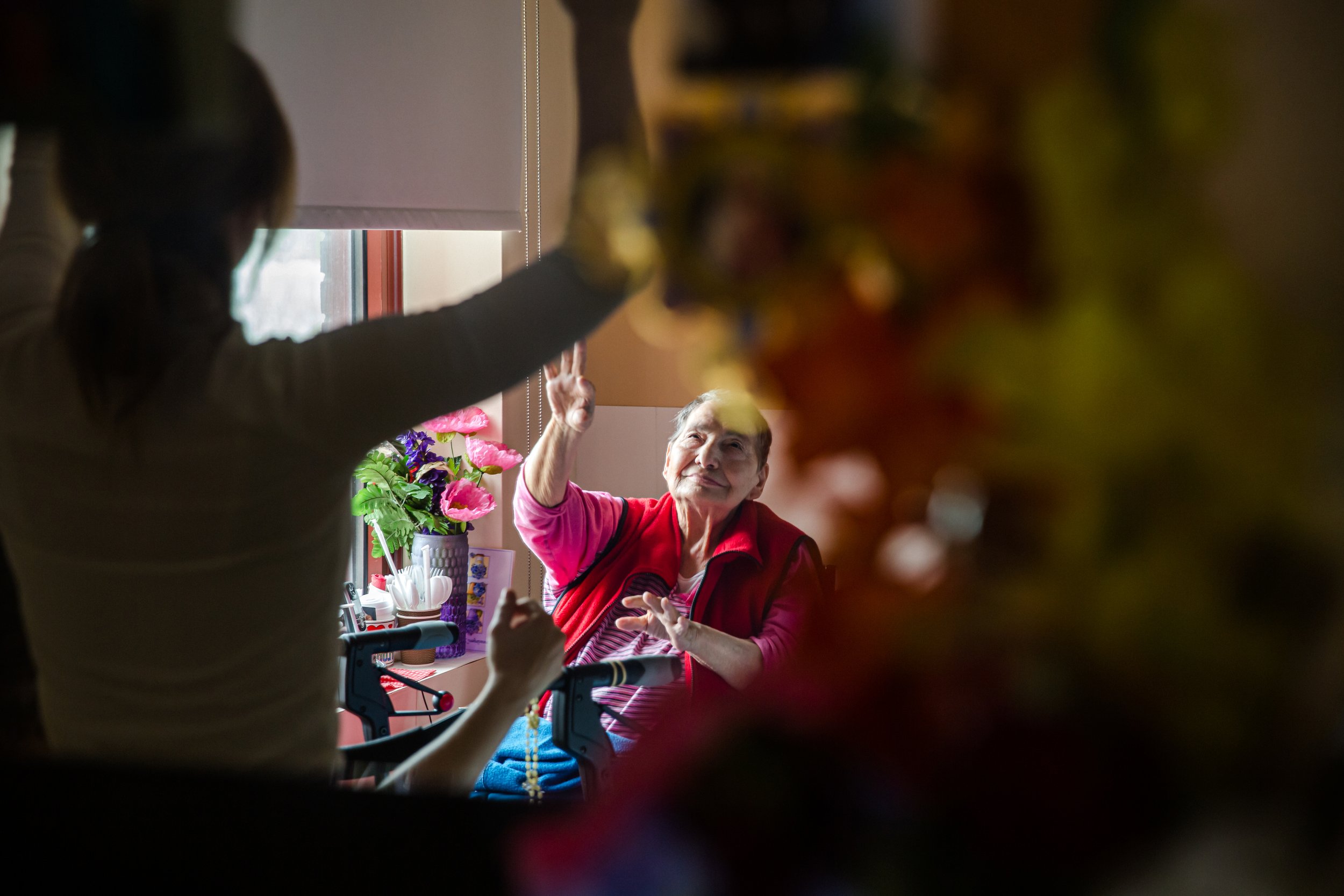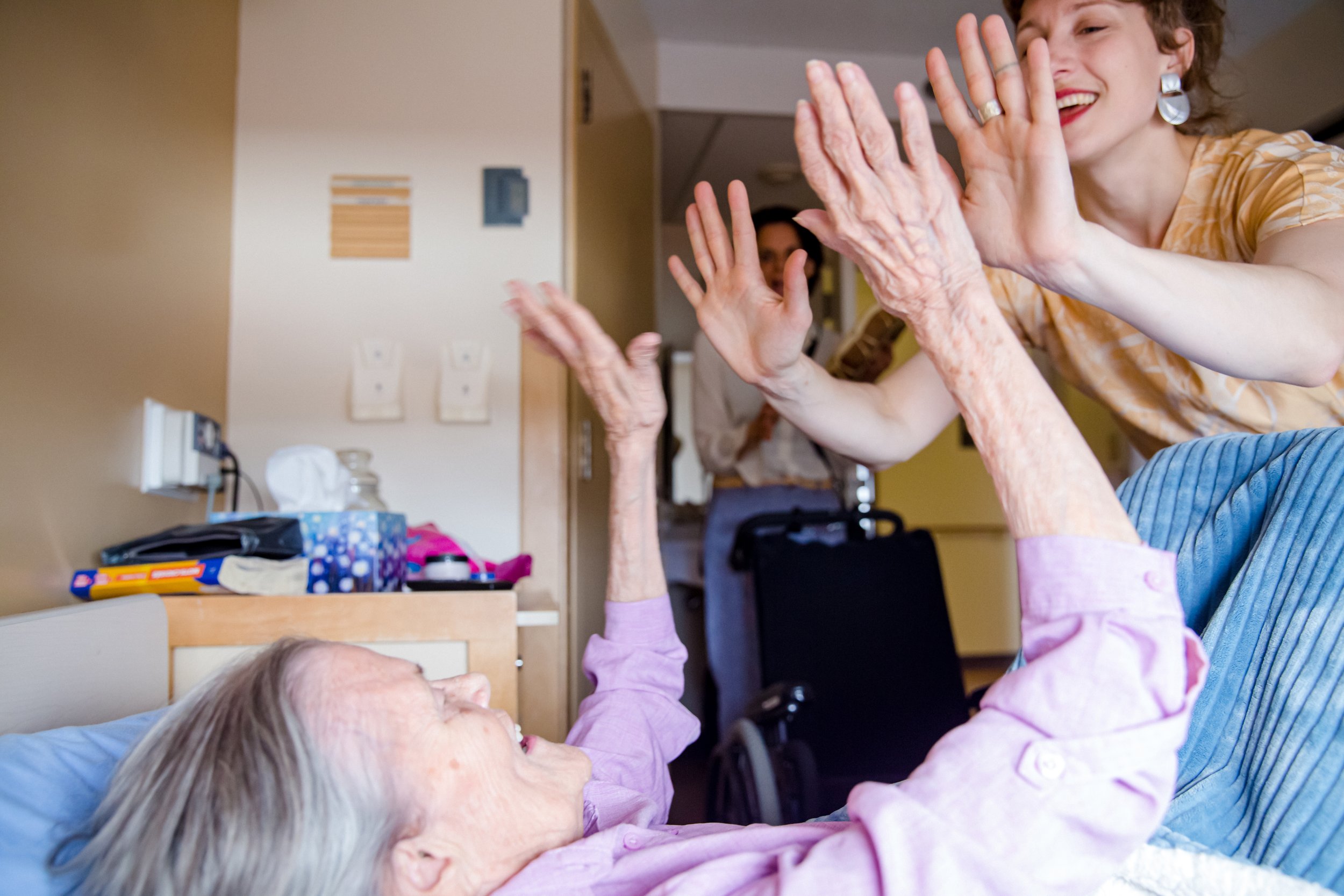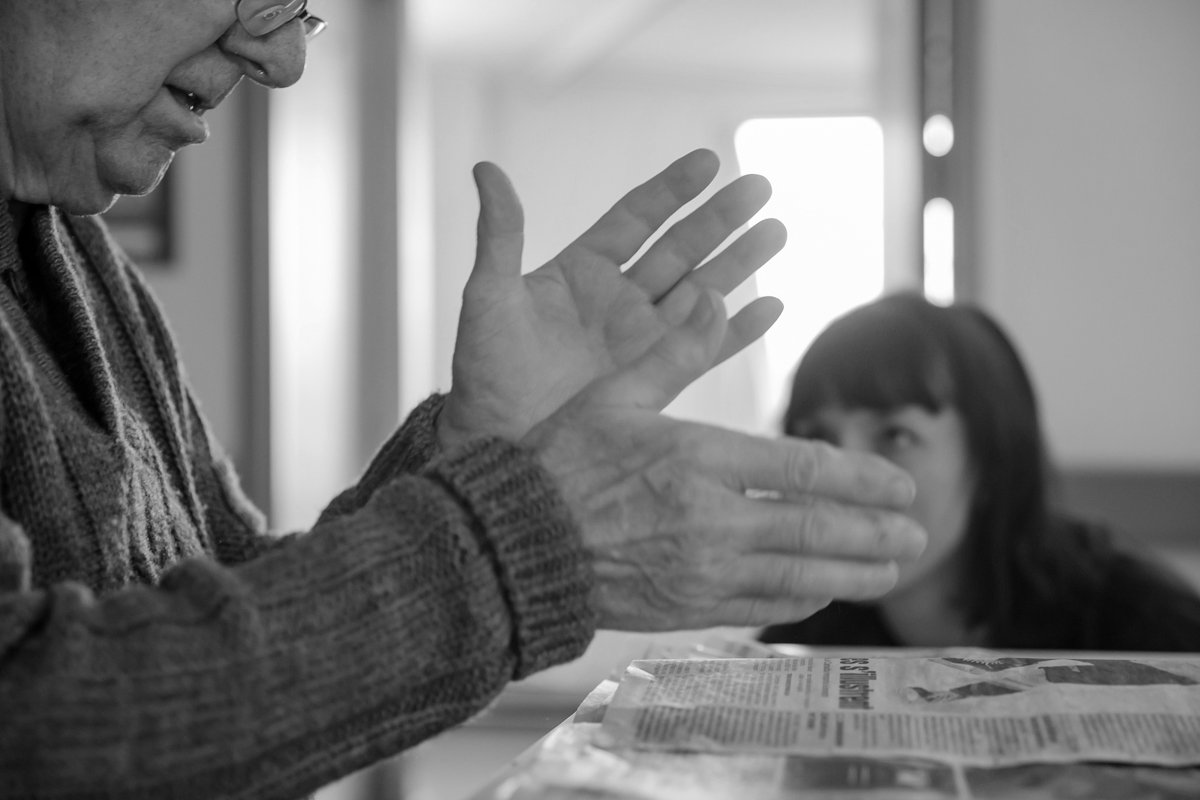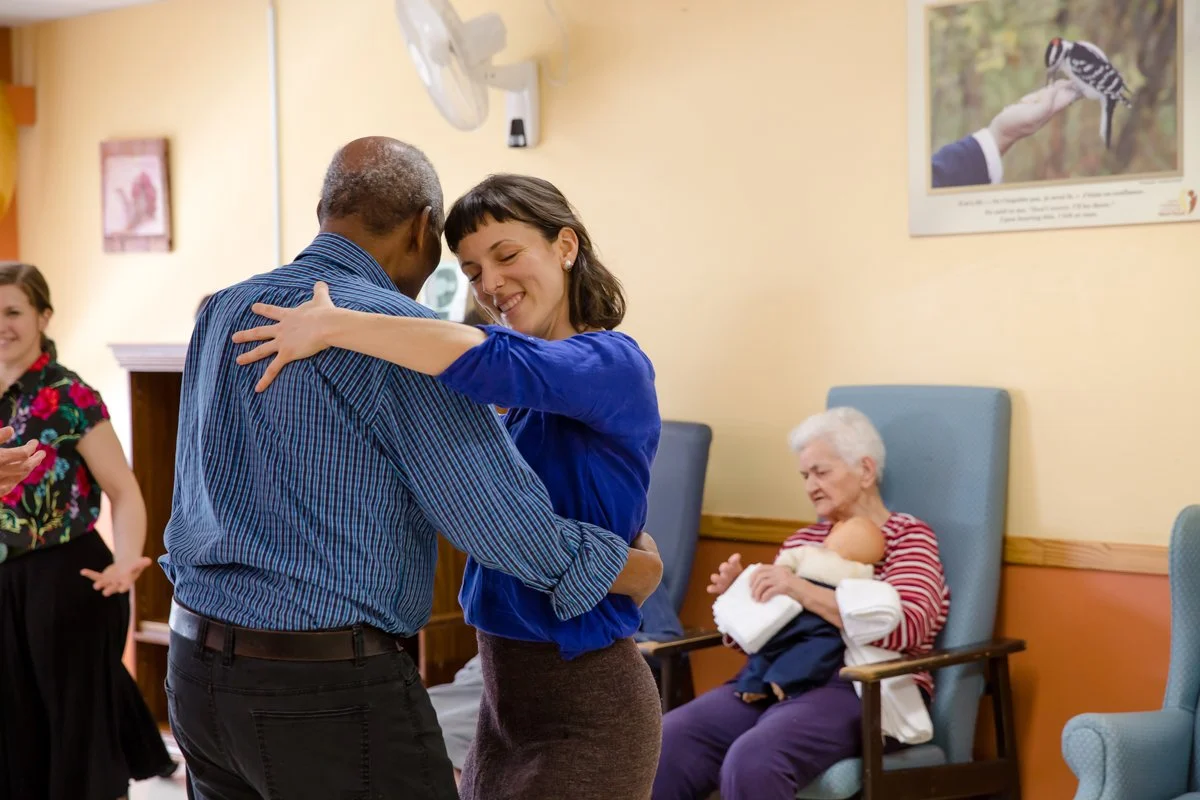
Dance and musical visits in CHSLDs to honour the creativity and dignity of vulnerable people
Mouvement de passage is an artistic and humanistic project born from a desire to bring a sense of wonder back into vulnerable individuals’ daily lives in care settings through dance, music, engagement and non-verbal communication.
For the past 10 years, the artists of Mouvement de passage have offered musical and dance performances in the corridors, rooms and common areas of long-term care centres (CHSLDs), connecting with people experiencing a loss of independence and/or living with neurocognitive disorders. These improvised encounters spark moments of humour, tenderness and poetry.
In addition to visits to CHSLDs, Mouvement de passage takes the form of a research project with McGill University, a choreographic work, and mediation workshops for families and loved ones.
listening
*
wonder
*
presence
*
creativity
*
connection
*
listening * wonder * presence * creativity * connection *

-
Click HERE to learn more about our visits to CHSLDs: our approach, how the visits work and our team’s expertise.
-
Click HERE to learn more about our project’s positive impacts on CHSLD residents and their loved ones, care staff and the arts community.
-
Click HERE to learn more about our partnership with McGill University to study how dance and music empower individuals living with neurocognitive disorders to meaningfully connect with the people in their lives.
-
Click HERE to read stories and reflections on our practice from our project’s artists.
Learn more about:
words from the residents
*
words from the residents *
Keep playing that drum, Marie, it stirs my soul.
I love you!!!
Your gestures... you’re making magic!
I don’t want to sleep—I want to see everything!
You’re swept away by a great river from far away.
You’re as crazy as I am! I’ve never felt so carefree.
I’ve travelled to 84 countries but never seen anything like this.
You’re better than any pill!
My legs can’t keep up but my behind’s still going.
Thank you — I felt so alone.

a unique exchange
*
a unique exchange *
A woman was shouting non-stop in the corridor. The whole floor could hear her. I came around the corner and saw her in her wheelchair, staring at the wall. Instinctively, I tried to embody her shouts through spasmodic movements. She started to watch me—half curious, half suspicious. I wasn’t sure if I should approach, but a nurse indicated that I could. I continued to translate the woman’s cries into movement. Marie, the musician, joined in. The care staff, puzzled, formed a circle around us. Between cries, the woman started laughing. She held my hands tightly while looking into my eyes. It was a totally unique exchange. The next day, the recreologist reached out to tell us that the woman had stopped shouting after our visit.
David Rancourt, Dancer
a rich pathway
*
a rich pathway *
In North America and much of the Western world, we place so much value on individuality—on a person’s personality and memories. We often see these characteristics as the essence of who someone is. And when something like dementia takes away memories, alters personality, or severs connections with one’s past or loved ones, there’s a risk of society viewing the person as having lost their value. Mouvement de passage provides a beautiful and rich way to forge relationships with individuals who may no longer remember their own name or recognize their family but who are still very capable of connecting meaningfully with others. I believe we need to recognize the value of that sort of relational presence, especially in Western culture.
Stefanie Blain-Moraes
Scientist, Associate Professor, School of Physical and Occupational Therapy, Faculty of Medicine and Health Sciences, McGill University
Photos | Emily Gan
